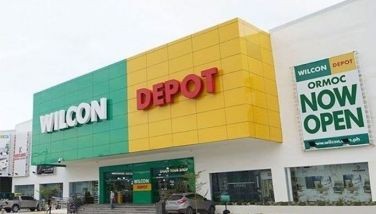Flying-V complies with 5% biodiesel blend reqm’t
MANILA, Philippines - Filipino-owned Flying V has started implementing last week the soon-to-be-mandated higher biodiesel blend of five percent, beating its peers in the petroleum industry.
In a briefing with reporters late Friday, Flying V chief operating officer Noel Soriano said the company launched on Aug.12 its B5 blend, making it the first oil company to do so.
“We launched it last Aug. 12 initially in a limited number of stations only. In principle, this is good for the economy,†he said.
He also said that the higher B5 blend would lead to a 12 percent reduction in emission and 5.9-percent fuel efficiency.
Flying V, which has its own coco-biodiesel plant, hopes its higher B5 blend would also boost the company’s expansion plans. The company currently has 350 stations nationwide.
“We want to reach 400 by the end of this year if all goes as planned. In the first quarter of next year, we plan to reach 420 stores. And maybe, we can reach 500 by the end of next year because we don’t stop, we just continue (to build new stations),†Soriano said.
The Department of Energy (DOE) wants to implement the higher biodiesel blend of five percent next year instead of the original 2015 target but big oil firms are saying they are not ready.
In the third and last public consultation conducted by the National Biofuels Board and the DOE among stakeholders on Aug. 22, Energy officials said the government is looking at implementing the higher blend next year because there is sufficient supply in the country.
The Biofuels Acts of 2006 requires a higher biodiesel blend of five percent from the current two percent.
However, during the consultation Philippine Institute of Petroleum executive director Sally Monteiro said the petroleum players were hoping for more time to implement the higher biodiesel blend instead of next year.
Industry players such as Chemrez Technologies said the blending of coco biodiesel into diesel would reduce the country’s dependence on imported oil, in accordance with the Philippine Energy Plan that aims to achieve energy independence within the next decade.
Furthermore, Chemrez said simply blending five percent coco biodiesel into diesel can save the Philippines an estimated P13 billion worth of imported crude oil every year.
Under the law, the amount of coconut oil for fuel to be blended with diesel may be increased taking into account considerations such as domestic supply and availability of locally sourced biodiesel.
However, since 2009, biodiesel has been blended at two percent with diesel fuel.
The NBB is chaired by the Secretary of the Department of Energy and comprised by the heads of the Department of Trade and Industry, Department of Science and Technology, Department of Agriculture, Department of Finance, Department of Labor and Employment, Philippine Coconut Authority, and the Sugar Regulatory Administration.
The NBB aims to help the local coconut industry, which is currently facing challenges from cheaper palm oil competition.
- Latest
- Trending



























